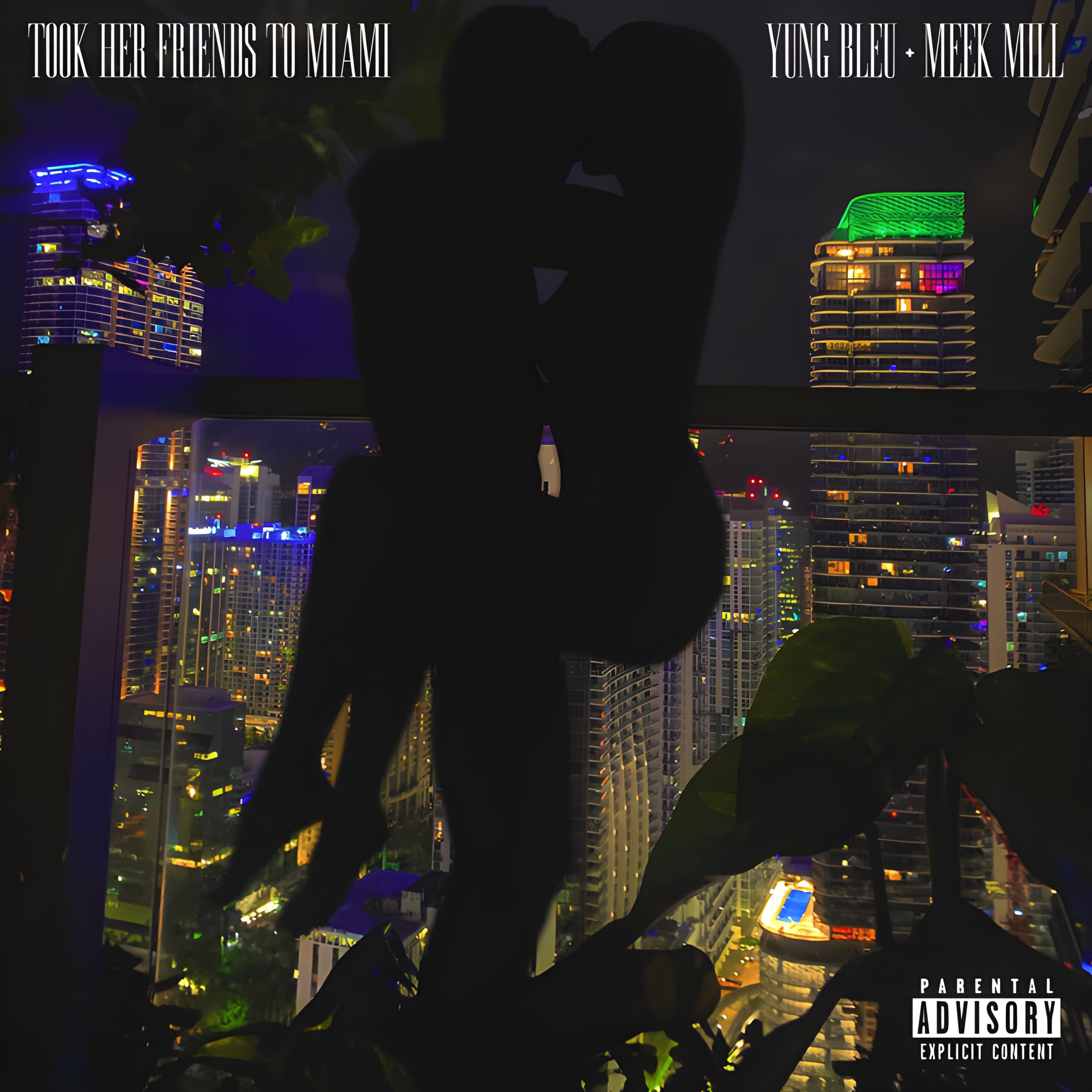Released: 2025
“Friends to Miami” by Yung Bleu, featuring Meek Mill, dives into the emotions and aftermath of a broken relationship. The song paints a vivid picture of an ex-partner attempting to move on, all while both parties are dealing with the feelings of nostalgia, regret, and desire. The narrative follows her journey to Miami, hinting at escapism and the search for something, or someone, new.
The chorus sets the scene with “She took her friends to Miami,” which becomes the anthem for her escapade. It’s almost like an assertion of her independence, suggesting that she’s trying to move on by heading to Miami, a place synonymous with freedom and fun. There’s an undertone of cynicism here, implying her intentions may not be purely recreational—”up to no fucking good” repeats like a warning, reflecting skepticism about her motives.
The opening verse brings forth the protagonist’s insecurity. As Yung Bleu raps about her going “up to no good,” he mixes frustration with an admission that she could have been more. The raw line “You went to Miami and you coulda been my whole girl” exposes the loss he feels. Miami is her stage of rebellion, but the reflection of her leaving evokes a deeper sense of missing connection.

Yung Bleu doesn’t shy away from depicting physical memories either. Lines about intimacy on a balcony carry emotional weight. The phrase “Fuckin on you bought it out me ain’t have no chill” captures the intensity and the intimacy shared. This underscores his struggle in coping with her departure and seeking something ‘realer’ that he lost.
Meek Mill’s contribution begins with reflective observations, injecting the narrative with the ex-lover’s endeavors. He articulates how she seemingly flaunts her independence in Miami but implies it’s an act to cover up the heartache. “See you at the mall with ya friends in that brand new Benz,” he raps, illustrating a picture of luxury that tries to hide deeper insecurities.
This part of the song brings out a more self-reflective tone from the protagonist. “I know you wanna fuck with me again” implies the tension between her public independence and personal longing. It’s a narrative turn that subtly asks whether freedom and solitude really fill the void of lost love, encapsulating an often unspoken aspect of moving on.
There’s a distinct juxtaposition throughout as Meek Mill’s lyrics bring to light the duality of social appearance and private longing. Her apparent liberation, described in snapshots of social media, is mirrored against her solitude when she is not “Keke’n over dinner” with friends. “Tellin everyone how I fucked up,” showcases how the public portrayal doesn’t align with personal reality.
Yung Bleu and Meek Mill come together, balancing between pointing out her efforts to cleanse and reset, while reflecting on their impact. The line “I know you miss me” speaks volumes of an underlying truth that exists despite everything. The external reality of their separation fights with internal sentiments and what remains unsaid.
In the later verses, the emphasis shifts more on reflecting and acknowledging the consequences of their choices. The painful realization “I know you a good girl” carries forward a sense of guilt intertwined with respect, painting her in a more positive light. It’s as though he grapples with past decisions and their long-term effects, hoping for eventual reconciliation or understanding.
As the song draws to its conclusion, the thematic circle completes itself by reasserting the complexity of breakups. Both artists expose how emotional reality is often glossed over by social actions—highlighted when the ex’s efforts in Miami only leave deeper feelings unresolved. The juxtaposition between “They up to no fuckin good” and the confession “But deep inside you know where you belong” reveals the depth of the emotional interplay between surface-level escapades and genuine personal connection.
“Friends to Miami” sits within a broader hip-hop narrative of confronting love and loss, casting a light on the emotional trials that accompany both. It aligns with many contemporary tracks that delve into personal introspection against a backdrop of lifestyle choices, inviting listeners to look beyond the flashy veneer and consider the deeper emotional undertones. The story speaks universally to anyone who’s navigated the messy terrains of relationships and moving on, capturing both vulnerability and defiance with each beat.






